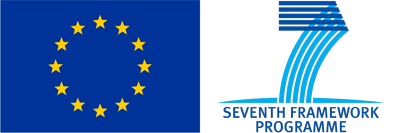In this section
Further information
10 Recommendations
The RECODE overarching recommendations are intended to direct consensus-building and action towards ten broad areas that were identified by project research as significant in view of enabling open access to research data. The broad nature of these recommendations is also intended to be useful and accessible to both stakeholders with very developed open access policies that could be improved and stakeholders with less developed policies. As such, they are supplemented by more specific recommendations for each category of stakeholder below. Finally, these overarching policy recommendations are necessarily geared towards decision-making stakeholders, but in all cases, we encourage these decision-makers to consult, involve and take seriously the perspectives and needs of the research community before developing policies or programmes.
The RECODE ten overarching recommendations are the following:
1. Develop aligned and comprehensive policies for open access to research data
Funder, institutional and publishers’ policies setting open access to research data as the default practice are necessary in transitioning towards open science. Policies should be consistent with national priorities and aligned with the European framework for open access to research data (2012 Recommendation and Horizon 2020), while also complementing that for open government data. Provisions should be made for the necessary resources that will allow policy implementation.
2. Ensure appropriate funding for open access to research data
Policies and mandates for open access will bring the expected results if accompanied by appropriate funds. Particular attention should be directed towards provisions for funding the development and long-term sustainability of necessary infrastructures; training of researchers, librarians and other technical staff; innovative actions.
3. Develop policies and initiatives that offer researchers rewards for open access to high quality data
Funder and institutional policies that offer researchers rewards for providing open access to high quality data are central in the transition towards open science. Official measures and processes need to be put in place to include the open sharing of research data in funding and professional advancement decisions.
4. Identify key stakeholders and relevant networks and foster collaborative work for a sustainable ecosystem for open access to research data
The open access ecosystem comprises a diverse group of stakeholders with multiple and often overlapping functions. To be sustainable, collaboration is essential as it affords the gradual development of a coherent view among stakeholders, an agreement on their roles and responsibilities, the allocation of resources and alignment of stakeholder policies, while avoiding the duplication of effort and loss of resources.
5. Plan for the long-term, sustainable curation and preservation of open access data
Stakeholders should draw their attention specifically to the long-term availability of high-quality research data. A strategy for long-term, sustainable curation and preservation requires leveraging resources as well as developing appropriate services and infrastructure. In doing so, the use of collaborative models should be considered.
6. Develop comprehensive and collaborative technical and infrastructure solutions that afford open access to and long-term preservation of high-quality research data
Existing infrastructures should be further collaboratively developed to address in a comprehensive way data harmonization, discovery and access, preservation, technological obsolescence, documentation and metadata, quality and relevance indicators and security issues, among others. Approaches should address the diverse disciplinary requirements and data variety, as well as metadata and data standardization.
7. Develop technical and scientific quality standards for research data
Stakeholders should collaborate in developing shared quality standards that will ensure the proliferation of high-quality reusable research data. Consensus should be built on the technical quality standards of research data, as well as on their scientific quality in line with disciplinary practices and norms. Appropriate strategies should be developed for the evaluation of the scientific quality of data.
8. Require the use of harmonized open licensing frameworks
Open licenses, like creative commons, provide information on the terms under which research data should be accessed, shared, and re-used. Their popularity is an indication of their utility and efficacy, yet further options for licensing should be examined, along with identifying mechanisms to enforce these licenses and developing new, interoperable licenses.
9. Systematically address legal and ethical issues arising from open access to research data
Open access to research data raises important legal and ethical issues, which should be addressed systematically by stakeholders. This can be done through the institutionalization of processes, dedicated fora, training, the use of technological solutions (e.g. machine-readable licenses) and the search for new and more efficient solutions.
10. Support the transition to open research data through curriculum-development and training
The transition to an open science paradigm where research data plays a significant role requires training and education for researchers and for data managers who support open science. Courses for getting researchers and data managers up-to date with current relevant issues are necessary, as well as the development of curricula that contribute towards the development of data science and information management as distinct career paths.


